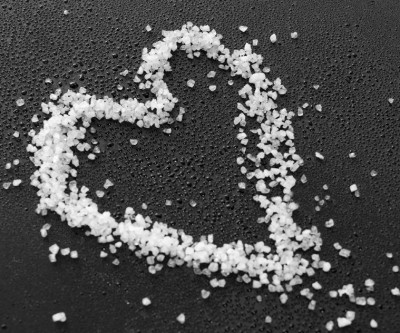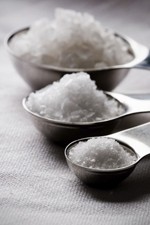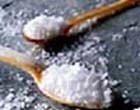Cochrane review doesn’t change our advice on salt reduction, AHA

The AHA was responding to a review of scientific literature by The Cochrane Library just published in the American Journal of Hypertension (click here for more information).
The plain language summary of this concluded that “cutting down on the amount of salt has no clear benefits in terms of likelihood of dying or experiencing cardiovascular disease”.
Salt Institute: Public health policy must be based on science
The Salt Institute said this proved “beyond any reasonable doubt that population-wide sodium reduction efforts provide no measurable benefits and may increase the risk of disease and death.”
It then called on the government to “cease its costly and wasteful efforts to reduce salt consumption” until it could conclusively prove a tangible benefit for all consumers via large scale clinical trials.
Vice president of science and research Mort Satin added: “The public health agencies have deliberately ignored the preponderance of clinical evidence in order to pursue a reckless salt reduction agenda based far more on ideology than science.”
AHA Our sodium reduction advice stands
However, the AHA insisted that its position on sodium reduction had not changed: “The American Heart Association strongly recommends that people – whether or not they have high blood pressure – limit the amount of sodium consumed daily to no more than 1,500 mg.
“Reducing sodium now – even for people who have normal blood pressure – can reap enormous long-term benefits by reducing the risk for developing high blood pressure, and helping those with high blood pressure manage their condition more effectively.”
It also noted that the studies in the Cochrane review analyzed the amount of sodium participants were consuming through diet diaries, which might “not be as reliable as measuring urinary salt excretion to quantitatively assess sodium intake”.
“In addition, the studies included a mixed population including those with heart failure, which clouds the picture as results on these patients are not relevant or able to be extrapolated to the general population. There was a strong trend of fewer deaths in individuals with normal blood pressure and low sodium intake that did not reach statistical significance, largely due to the small study size and the number of events.”
Dietary Guidelines: “Virtually all Americans eat too much sodium”
According to the US Department of Agriculture’s 2010 Dietary Guidelines, ”virtually all Americans consume more sodium than they need”.
The guidelines add: “An immediate, deliberate reduction in the sodium content of foods in the marketplace is necessary to allow consumers to reduce sodium intake to less than 2,300 mg or 1,500 mg per day [for those aged 51+, all African Americans, plus anyone with hypertension, diabetes, or chronic kidney disease] now.”
Industry has been under pressure to respond, with several leading US food manufacturers including Heinz, Kraft Foods and Unilever recently joining the National Salt Reduction Initiative (NSRI), which aims to cut salt in retail and foodservice across the US by 20 percent in five years.
NSRI: Eating less sodium will improve your health
The NSRI partnership is led by New York City health officials to promote a voluntary approach to sodium reduction and includes specific targets on a category-by-category basis.
When a company signs up, it pledges that its overall sales in a given category – canned soup, for example – will meet the relevant target for salt content, even if some individual products don't.
A spokesman said: "The NYC Department of Health has reviewed the Cochrane Review. The research has a number of limitations, which the authors acknowledge, including a small number of cardiovascular events and relatively short follow-up time, which make the findings difficult to interpret.
"However, the conclusion of the article, which notes that voluntary salt reductions by the food industry may hold more opportunity to reduce sodium intake than dietary advice, is consistent with the aims of the National Salt Reduction Initiative (NSRI). Most studies over the years have concluded that eating less sodium will improve your health"

















